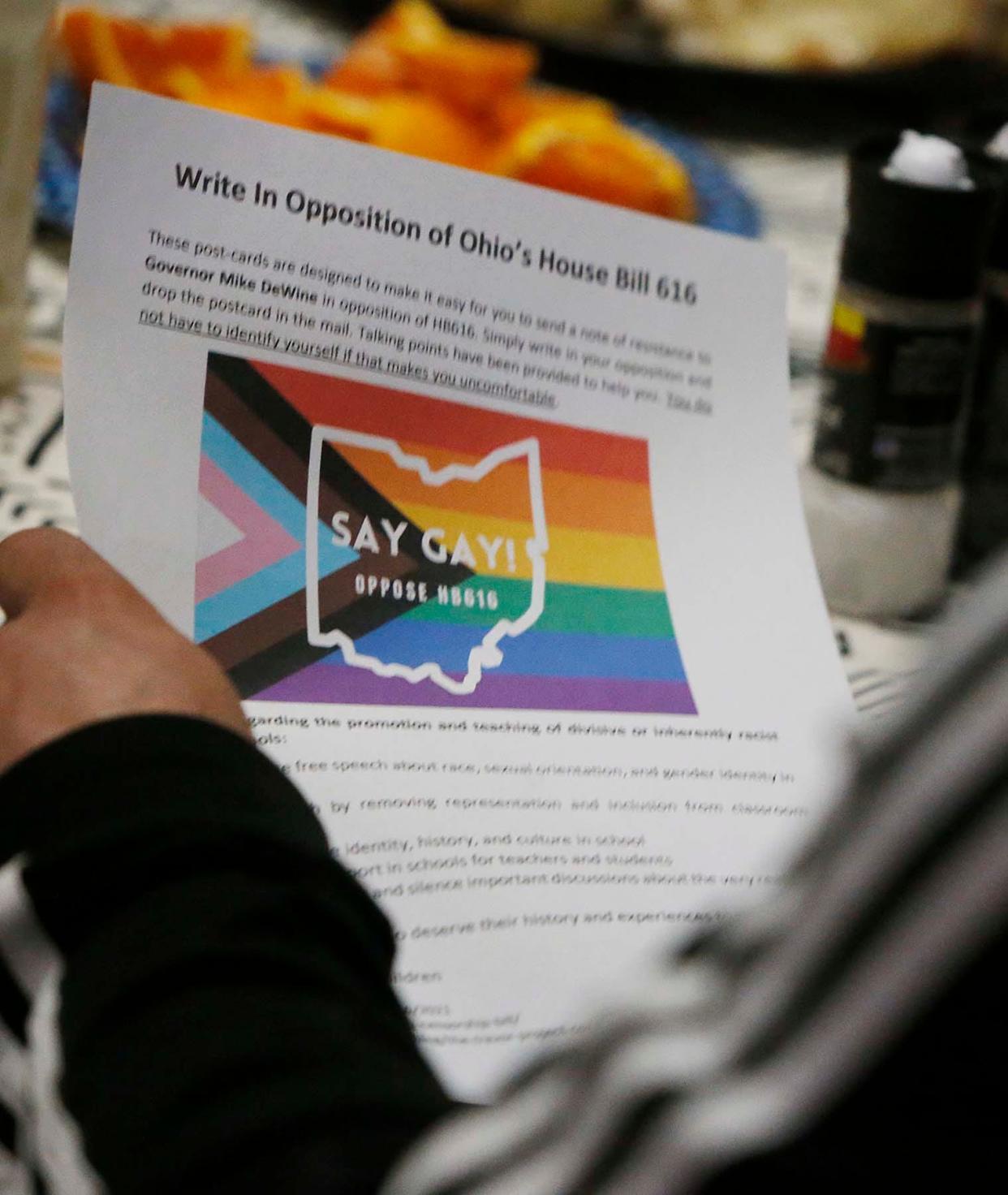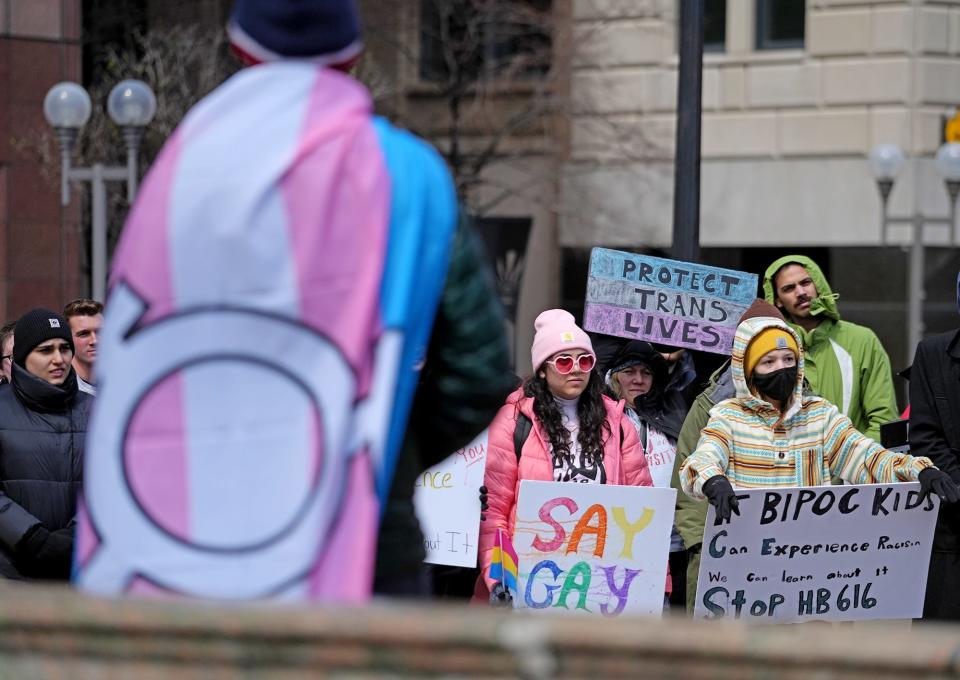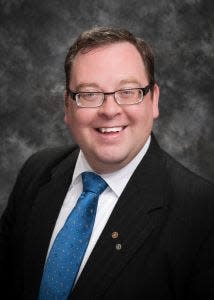Opinion: The identities, lives of Ohioans are not divisive

Ohio lawmakers have introduced several bills that have the potential to cause real and direct harm to the people of our state. That's why the Board of Directors of Community Shares of Greater Cincinnati, our region's only federation of social and economic justice charities, strongly condemns these attacks on our freedoms, liberties and the very lives of our children.
House Bill 454 would ban vital gender affirming medical care such as puberty blockers and hormone therapy for transgender youth under the age of 18, while HB 61 and Senate Bill 132 would ban transgender girls and women from competing in women’s sports.
The American Academy of Pediatrics, which represents 67,000 pediatricians and pediatric subspecialists in the United States, notes that bills such as these discriminate against transgender youth based on myths, misinformation and misunderstandings about gender-affirmative care as opposed to actual science. They assert that such bills are a dangerous attempt to put politicians with no legitimate medical knowledge in charge of patients’ care instead of doctors and parents.
Studies indicate that while fewer than 2% of high school students identify as transgender, 35% of them have attempted suicide. However, studies also confirm that when transgender youth receive gender-affirming medication to align their body with their gender identity, the risk of suicide is decreased by 70%.
Community Shares member organization Equality Ohio notes that HB 61 and SB 132 seek to single out transgender young people for increased bullying and harassment and prevent athletic experts such as the Ohio High School Athletic Association from making their own policies that they deem are best for athletes.
HB 598 and SB 123 would ban pregnancy termination in Ohio under all circumstances except to save the life of the mother if the Supreme Court overrides the existing precedent of Roe v. Wade. The bills make no exception for rape or incest because the authors said any victim of rape or incest could have chosen to take birth control prior to the rape or incest if they didn’t want to risk getting pregnant should someone choose to assault them. These bills deny Ohioans vital reproductive medical care and bodily autonomy.

HB 322 and HB 327 seek to eliminate racial context from history lessons and to force teachers to show all sides of topics deemed controversial. The sponsor of HB 327 specifically gave as an example the offensive notion that the viewpoint of Nazi soldiers should be considered by students as equal to the experience of victims of the Holocaust, which she also mischaracterized as having killed a few hundred thousand Jews instead of 6 million.
In response, Anti-Defamation League Regional Director James Pasch explained there are historical events such as the Holocaust and slavery where there are not two sides. "It’s ignorant. It’s dangerous," he said.
Ohio Federation of Teachers President Melissa Cropper said the bill "is repellent to every teacher and should be equally repellent to every legislator." She added that the ignorance of the bill’s sponsor as to the facts of the Holocaust "show exactly how important honest education on difficult topics is."
Recently, legislators went even further and introduced HB 616, which marries the worst parts of the proposed curriculum bans with an even worse version of Florida’s "Don’t Say Gay" bill. This "Don’t Say Gay, Don’t Mention Race" legislation would ban anything the state Board of Education – the same people who a few months ago rescinded a resolution condemning racism – considers to fall under the category of "critical race theory," even though it is undefined in the bill. In addition, it would ban intersectional theory, DEI (diversity, equity, and inclusion) work in education, the 1619 Project examining slavery, and any concept that meets the undefined qualities of being "divisive or inherently racist." In other words, discussion of America’s complicated and violent racial history will be off limits.
Furthermore, the bill bans any materials or curriculum that includes sexual orientation or gender identity in grades K-3 and requires any such material or curriculum in grades 4-12 meet the (again, undefined) qualifications for "age appropriate and developmentally appropriate."
Such broad, vague language guarantees abuse. Although heterosexuality is a sexual orientation and stories that show traditional gender roles are presenting gender identity, we do not expect those materials will be censored under the bill, only material focused on LGBTQIA students and families.
Will LGBTQIA students or the children of LGBTQIA parents even be able to discuss their families and their lives in school without causing their teacher to be fired? These students will be singled out for ridicule and shame, made to feel less than, and placed on the road to self-harm.
Again, from our member organization Equality Ohio: "Let’s be clear: our identities and our lives are not divisive concepts… This is a small minority of people pushing their agenda, and in the process putting people and families in jeopardy for political gain. Our kids are not political pawns for these politicians’ reelection campaigns. This bill would be devastating for the 30% of LGBTQ+ families raising kids in this state, and for the communities that love them."
The National Survey on LGBTQ Youth Mental Health found that 42% of LGBTQ youth seriously considered suicide in the past year, four times the rate of straight peers. Studies have shown that having one caring adult who accepts their sexuality or gender identity, which is often a teacher if the student fears their parents will not be accepting, reduces the risk of suicide by 40%. This bill will chill those discussions and leave these vulnerable kids to face everything on their own without that life-saving support.
Hate has no place in Ohio. These bills have no place in Ohio. The Board of Community Shares strongly opposes each of these pieces of legislation and urges our stakeholders to contact their local legislators to ask them to vote against each bill and call House Speaker Cupp at 614-466-9624 to register your opposition to these bills moving forward.
Our children are our most precious resource. We must protect them from these insidious attacks on their very being. We live in a diverse world. Everyone has the right to exist in it, and our children should be prepared for meeting those in it who are different than they are. They should be taught empathy and given care and love, not the tools of ignorance and intolerance. Please join us in fighting back to ensure they have a future.
T. Duane Gordon is CEO of Community Shares of Greater Cincinnati.

This article originally appeared on Cincinnati Enquirer: Opinion: The identities, lives of Ohioans are not divisive

